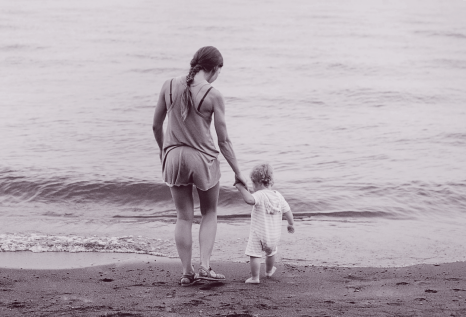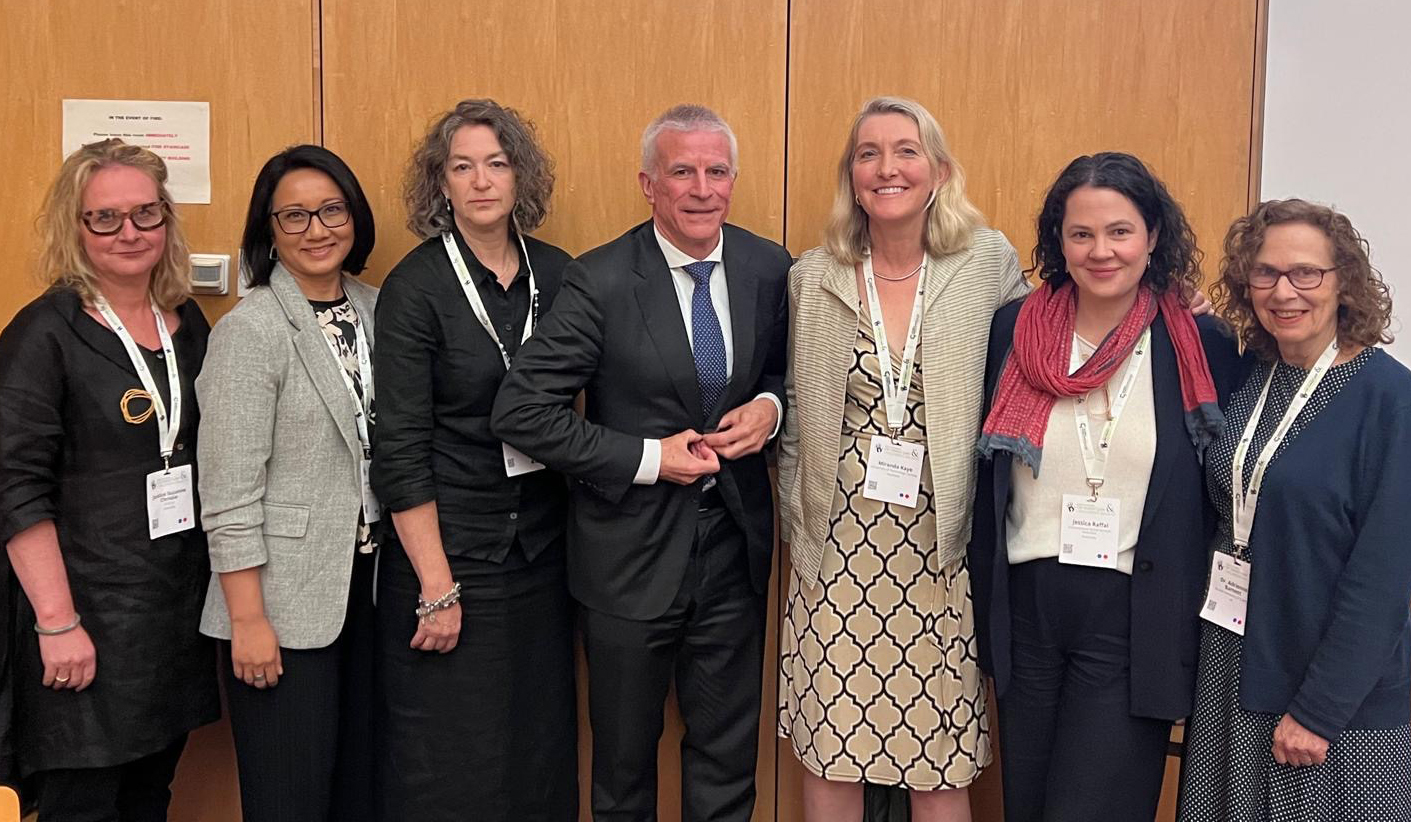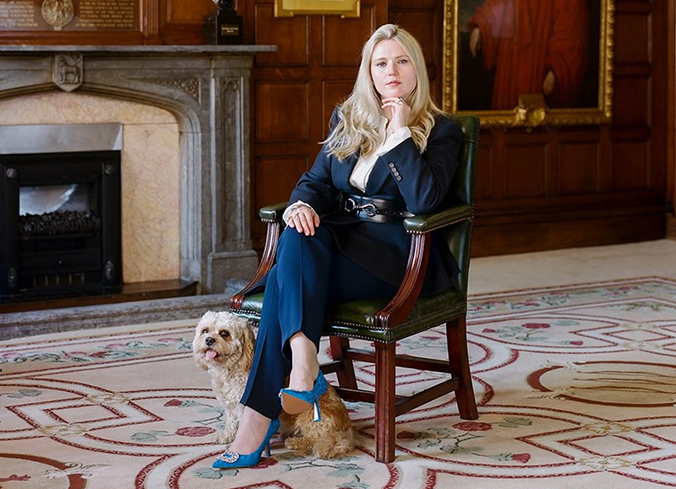Home With My Children – Mothers’ Voices
We speak with documentary filmmaker Jenny Wat who is a member of our Hague Mothers team.
Through her film ‘Home with my Children’ (watch the trailer here), Jenny is trying to raise awareness of the Hague Convention among mothers and safeguard mothers and children in abusive relationships.
We discuss the reason for the creation of the Hague Abduction Convention in 1980, how it fails to adapt to the 21st Century, and most importantly, how the system fails to protect children – which is supposed to be the very core of the Convention.
Expat mothers, whose child/ren and themselves are suffering from domestic abuse, are fighting against the legal system and the Convention at their habitual residence in order to return to their homeland with their child/ren (or reunite with them).
Contact hague@filia.org.uk if you can help Jenny – with funding ideas, industry contacts, or professional advice.
Transcript:
Ruth, coordinator of Hague Mothers, in conversation with documentary maker Jenny Watt.
Home with my children Jenny Watt.
Ruth: Hello, I’m Ruth and I’m the coordinator for Hague Mothers, which is a FiLiA Legacy project. We’re aiming to end the injustices caused by The Hague Abduction Convention, specifically for mothers fleeing domestic violence or coercive control. And today I am absolutely delighted to be joined by one of our volunteer members Jenny Watt, Welcome Jenny.
Jenny: Thank you, Ruth. Thank you for inviting me to the podcast and thank you for the introduction.
Ruth: Pleasure. So Jenny is an upcoming documentary director and she’s currently working on a film which highlights how the convention has utterly failed to protect children and mothers from domestic abuse.
We’ll put a link to the trailer for her film on our website. So to begin at the beginning, tell us a little more about yourself and how you came to be interested in the experiences of Hague mothers.
Jenny: Sure. Thank you. So I first came across Experiences for Hague Mothers by conducting research online on narcissistic personality because I was looking to do a movie about that due to my personal experience.
And then the research kind of got diverted into domestic abuse and The Hague Mothers and the children. And I was just absolutely shocked and horrified by what they went through in many of the so-called developed countries where the legal systems are supposed to be highly regarded and highly respected.
So I just decided to change direction of my research and my documentary, and focus my research on domestic abuse and The Hague Mothers and their children.
Ruth: What made you decide to make a film of their stories? Why did you feel that mothers’ actual voices were important?
Jenny: Because I want the world to hear what The Hague Mothers and their children have gone through and how the system has utterly failed to protect them.
Because a movie can create far greater impact in reaching much wider audience, which transcends all borders. And you can feel the emotions of the contributors because they’re literally in your face. Which means the audience are not just reading or hearing stories of an unrelated stranger from a national newspaper or on a national TV show because the targeted audience tend to be people from that particular country.
Whereas if you watch a movie and then you hear the voice of the mothers, the very courageous mothers and maybe their children, you can relate yourself to them. You know they’re real people because that can happen to you, your loved ones, your neighbours, your friends, relatives, people who you know and you love.
That’s why I decided to make a movie, record their voices and their stories.
Ruth: I understand that decision though I’m sure there were challenges along the way, but when they were telling those stories, Jenny, were there any common themes that were coming through?
Jenny: There is one major one, which is how the Hague judges have not taken evidence of abuse into very serious consideration.
And in Article 13 B of the 1980 Hague Convention on the civil aspects of international child abduction, it clearly states that a member state is not bound to order the return of the child if the person, institution, or other body, which opposes this return, establishes that there is a grave risk. That his or her return would expose a child to physical and psychological harm or otherwise place a child in an intolerable situation.
This happened across multiple jurisdictions from what I’ve gathered. From the legal perspective, I think it could be due to the fact that the evidence presented was not substantial, the victims were not able to back up the evidence with medical proof or from a third party professional.
However, I think one must remember that sometimes abuse happened at the very, very early stage of relationship without one realising it.
And it is extremely difficult to pinpoint exactly when the abuse actually happened, be it physical, mental, or psychological. I mean, there’s no CCTV recording and therefore the court, they might argue anecdotal evidence. And also on top of that the court might not have realised that many of these Hague mothers do not have the same rights of access to otherwise free services because they and the children are not PR [permanent residents] or citizens and are residents.
These mothers who’ve been abused, they’re trying to protect the children from the perpetrators while fighting multiple battles at the same time. Sometimes you know, something very basic like, you know, money for food and money for accommodation, money for school, medical fee, legal fee, et cetera which one might have taken for granted if you were a citizen or a PR.
So when the Hague mothers are at the court, they’re trying to present evidence of abuse. Not only are they completely traumatised by this very overwhelming legal experience because before they relocated they would have never, ever have thought that this will happen to them one day. They have never imagined that they and the children were abused. They have to go through this lengthy process, not to go home. So they’re exhausted. They’re confused, and therefore the judges quite often would just dismiss them as being unreliable for providing inconsistent evidence.
At this moment, I believe only they have a guardian ad litem system where they would take evidence from children involved, evidence gathered from the children, seriously, and they would present them in court.
But I believe that this is not a common practice across all jurisdictions who have a signed up to this convention, so in conclusion, what are The Hague mothers supposed to do?
Ruth: So you’re facing a number of challenges. So what’s your aim? What do you hope to gain from making the film?
Jenny: My main goal is to raise awareness because not many people are aware of the existence of the 1980 Hague Child Abduction Convention until it hits them and then by then it is far too late, so that’s my main goal.
Ruth: And you’ve been self-funding the work to date, so what stage are you at so far?
Jenny: So, the trailer was filmed in Singapore, so I have filmed quite a number of Hague mothers in Singapore.
I’ve also been to quite a number of countries in Western Europe as well to do the filming because I’m currently based in the UK. So in terms of travel it’s just much easier that way. The next stage is to look for funding to complete the rest of my documentary.
I have completed a budget proposal and most of the funding will cover the transportation and subsistence trips and stuff like that because I need to fly to Australia and New Zealand where a lot of my contributors are based. I mean, this is not a Western European or American issue. This is a global issue. It happens everywhere in a lot of places across different jurisdictions. So yes, that would be great.
Ruth: Okay, so funding, what else do you need? Is there anything else people can do to help?
Jenny: Yes, as many stories as possible because I’m still in the process of collecting stories from Hague mothers who are the primary caretakers of the children who have been domestically abused and whose situations have been ignored by the police and social workers and have been sent a Hague petition.
So still collecting stories and also industry contacts would be great. I am the only person working on this documentary at the moment. So any alternative angle will be great and a producer would be good.
I think I need like just a third pair of eyes just to look through things and just provide a different angle and advise, that would be great.
Ruth: So if all goes well, as I’m sure it will, and you get the support you need. what’s your dream outcome?
Jenny: My dream outcome is to raise awareness. That every time when people want to relocate with their children or are thinking of bringing up their children in another country, they will think twice before doing that.
Because by raising enough awareness, changes can happen just like the Me Too movement. And secondly, my dream outcome would be to make sure that all the Hague judges, they must take evidence of abuse and Article 13 B into very, very serious consideration. They must have empathy. They need to understand that the mothers, they’ve been traumatised, they’ve been abused, they go through multiple battles and processes, they need to understand where they’re coming from.
They just want to go home, return home with their family, and not to be returned to the perpetrators. Just like how you would deal with a local domestic abuse case where you would not return a victim back to the perpetrators.
Just remove the whole Hague, remove the relocation. It is really that simple.
You just do not return the victims back to the perpetrators. Full stop.
So my ultimate aim by doing this documentary is to protect the mothers and the children, so it will not happen again.
Ruth: Thank you so much, Jenny, for your work on this project and for your support for Hague mothers generally. And could I ask people who are listening to this podcast please to watch the trailer, pass it on to others.
And if you can help Jenny in any way with ideas for funding resources, with industry contacts, or if you are a Hague mother or about to be a Hague mother who has a story to tell. Please get in touch with us in the first instance @hague.filia.org.uk. Thank you once again, Jenny, for all you’re doing to help mothers in this situation.
Jenny: Thank you for your help and support, Ruth. Thank you.




